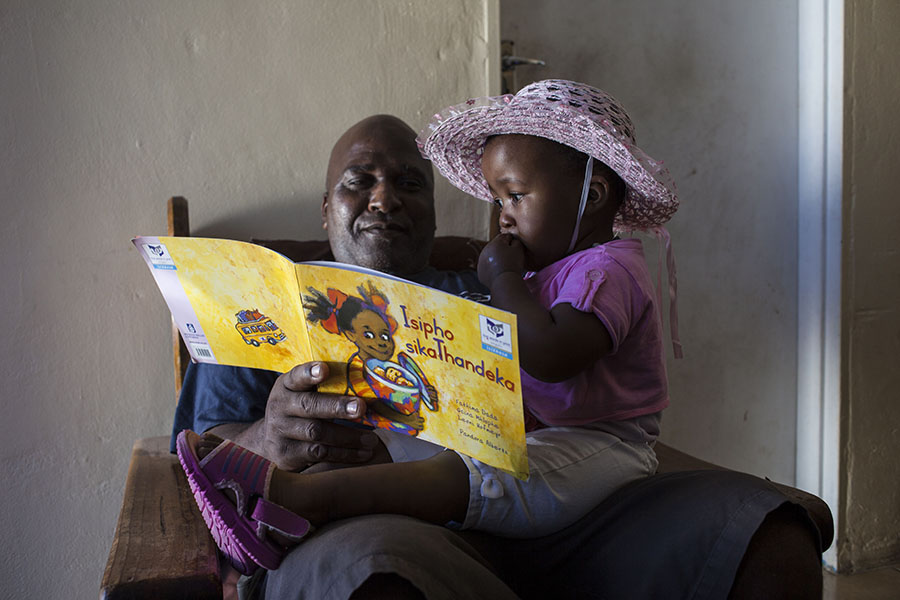This June Nal’ibali – the national reading-for-enjoyment campaign – is focussing on fathers and father-figures, and the powerful role men can play in their children’s lives, simply by reading and spending time with them.

We know that fathers have an important role to play in the lives of their children. And, research over the last twenty years tells us that fathers can strengthen their children’s development when they are actively involved and interested in the lives of their children. There is no single “right” way for fathers to do this. Nor do fathers necessarily need to live with their children to make a positive difference.
There are many different ways that dads can connect with their children. Playing and reading together, going to school events and activities, and simply chatting on the phone. The key is to do these things regularly. Even small amounts of time spent together are special and help forge a bond and make memories. And, although it is best for dads to be involved from early in their children’s lives, it’s never too late to re-connect with your children.
For children, one of the main benefits of having a close relationship with their fathers is that it helps them feel wanted and secure. Quality father-and-child time increases children’s self-esteem, confidence, and social skills. And, it is equally important for girls as it is for boys. There are also academic benefits when fathers are involved in their children's lives. The amount of time that fathers spend with their children day-to-day, can have a greater effect on school results than the amount of money they earn.
And, the amount of time fathers spend reading with their children, is one of the best ways of predicting how well their children will read and write. Dads who read to their children are reading role models for them. They show their children that literacy is important, and that reading is an enjoyable, satisfying activity. And, children who read regularly for pleasure, perform better in the classroom, regardless of their family’s socio-economic standing. What this means is that men have the power to nurture their children’s emotional and academic development simply by reading and sharing stories with them on a regular basis!
Of course, fathers also benefit from being involved in their children’s lives. Involved dads have more confidence and self-esteem themselves, have a better relationship with their children, and experience more satisfaction as parents. And, while the educational value of fathers reading to children is critical, it has the added benefit of building a deep and emotional bond between father and child. This bond secures a healthy emotional growth adding to the total well-being and increased development of the child, who is positioned to be a better parent when his or her turn comes. So, this Father’s Day, why not start a tradition of reading and sharing stories with your children?
For more information about the Nal’ibali campaign, or to access children’s stories in a range of SA languages, visit www.nalibali.org, or send the word ‘stories’ to 060 044 2254. You can also find Nal’ibali on Facebook and Twitter: @nalibaliSA.
